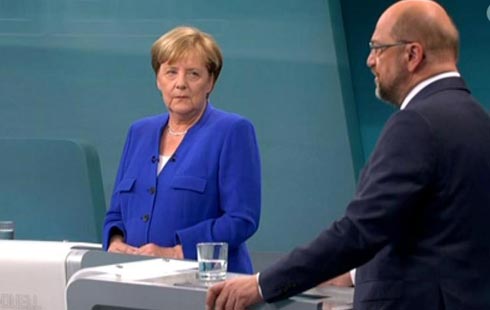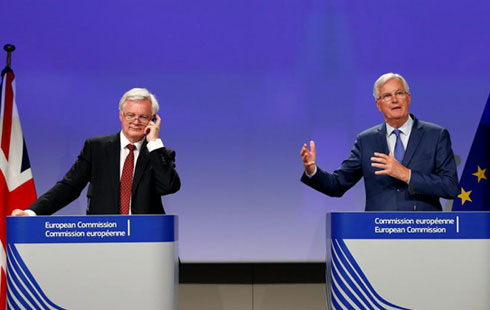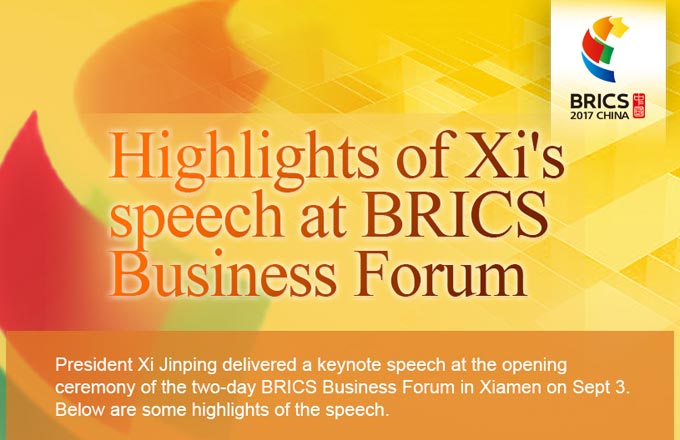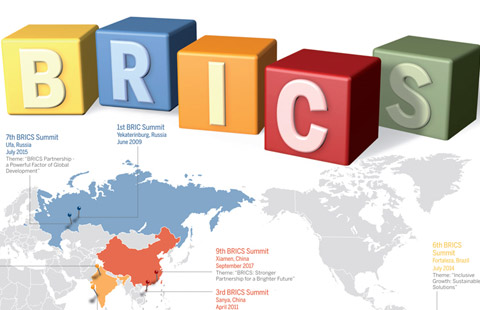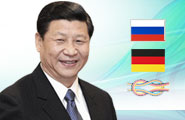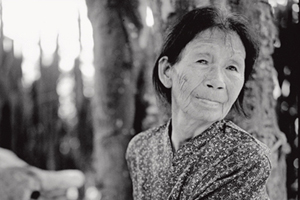High hopes on BRICS to keep shining
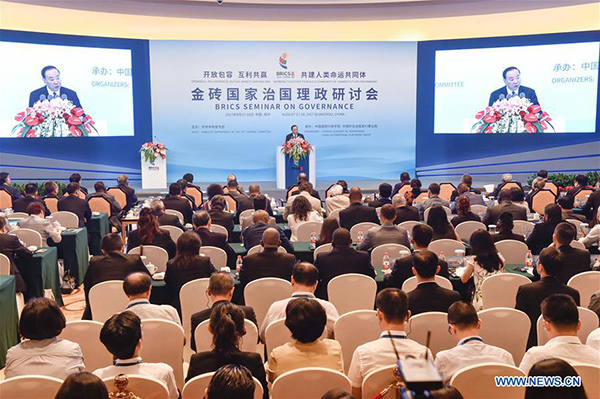 |
|
Huang Kunming, executive vice minister of the Publicity Department of the Communist Party of China (CPC) Central Committee, speaks at the opening ceremony of the BRICS Seminar on Governance in Quanzhou, East China's Fujian province, Aug 17, 2017. [Photo/Xinhua] |
QUANZHOU, Fujian - Academics and business leaders from developing countries attending a BRICS governance seminar in China have expressed confidence in the bloc to drive world economic growth.
The two-day BRICS Seminar on Governance was held in Fujian province ahead of the Ninth BRICS Summit to brainstorm ideas on governance.
"The rise of developing countries led by the BRICS countries is a world trend. They have become the main driving force of the world's economy and will play even bigger roles," said Hu An'gang, a professor at Tsinghua University.
Hu said the share of developing countries has risen to more than half of the world's economy and is expected to continue rising through to 2030.
Brazil, Russia, India, China and South Africa account for nearly a quarter of the world economy and contributed more than half of global growth in 2016.
The Chinese economy maintained steady expansion with a growth of 6.9 percent in the first half of 2017. The GDP growth of the Indian economy is expected to be even higher.
The other three members, which have suffered from either a stagnant economy or recession in the past few years, are poised for recovery, the academics said.
Director of the China-Brazil Center for Research and Business Ronnie Lins said Brazil has experienced political ups and downs over the past few years but President Michel Temer has assembled a very strong economic team.
The Brazilian economy climbed out of recession in the first quarter of the year. Lin said Brazil, like China, is a large country with a big population and huge resources.
"With crucial reforms taken, the Brazilian economy can maintain healthy growth," he said.
Liu Yong, chief economist of China Development Bank, said the BRICS countries have begun crucial economic transformations to rid themselves of the old growth models.
China is rapidly developing smart manufacturing and high-tech sector while India is taking serious moves towards urbanization. Russia has laid out strategies to reduce its economic dependence on oil, he said.
On South Africa, Essop Goolam Pahad, a former minister in the Presidency and now editor of Thinker Magazine, said South Africa has gone through "exceptional difficulties" in both political and economic arenas, but he remained confident that the country would soon find solutions and recover from the crisis.
"For somebody who was involved in the revolution, I am always optimistic and believe in the resilience of our people," he said.
Turning to BRICS, Pahad said the group is important as developing countries need a well-represented global governance system that is not controlled by the West.
He said the BRICS countries have become critical players across Africa's development landscape. China and India are the continent's first and third largest trading partners, respectively. Since the turn of the century, BRIC-Africa trade has surged from 28 billion to 377 billion US dollars, he said, citing the findings of a South African study.
In its first decade as a multilateral system, BRICS expanded cooperation scopes among its members and started to reach out to other developing countries.
The idea of BRICS Plus was floated earlier this year. The BRICS leaders are expected to give the notion more substance when they meet next month in Xiamen.
Hu said he supported the expansion of BRICS to take in more influential emerging economies like Indonesia, Nigeria, Bangladesh, Egypt, and Pakistan.
"They represent the key forces of the developing world. Their inclusion will have positive spin-off effects for others," he said.
Swaran Singh, a professor of Jawaharlal Nehru University, however, expressed caution on BRICS expansion, saying it might distract the group from its expanded scopes of cooperation and make it harder to reach consensus.
He interpreted BRICS Plus as formalizing the bloc's outreach programs which have benefited "the circle of friends" around each BRICS member.
"In the next five to ten years, BRICS is going to be a big organization that promotes a new international model," said Sofiane Sahraoui, general director of Brussels-based International Institute of Administrative Sciences.






